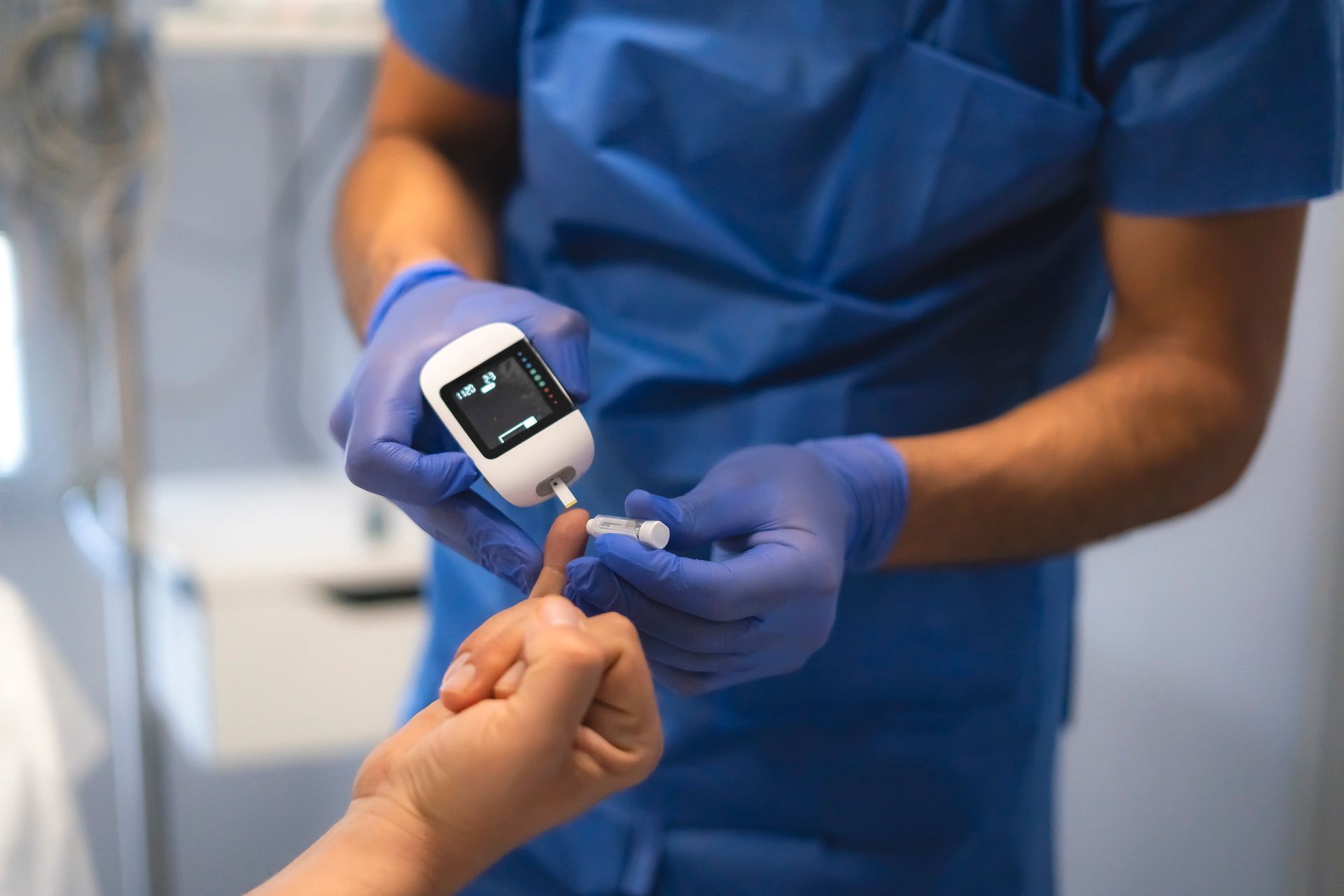By David Garman
•
July 11, 2025
Receiving a prediabetes diagnosis can be a wake-up call, but it's also a powerful opportunity. Prediabetes means your blood sugar is higher than normal, but not yet high enough to be classified as Type 2 diabetes. The good news? With effective lifestyle changes to prevent diabetes and proactive monitoring, you can often reverse this condition and prevent it from progressing. Dr. Chimezie Amanambu at Pax Internal Medicine Associates provides professional care, medical direction, and the understanding you need to navigate this crucial stage. Understanding Prediabetes and Its Risks Prediabetes is a serious health condition where blood sugar levels are elevated due to insulin resistance or insufficient insulin production. If left unaddressed, prediabetes significantly increases your risk of developing Type 2 diabetes, which can lead to severe complications affecting your heart, kidneys, nerves, and eyes. It's important to note that prediabetes does not typically progress to Type 1 diabetes, which is an autoimmune condition. However, proactive management is key to avoiding Type 2. How to Monitor Blood Sugar Levels at Home Monitoring your blood sugar levels at home is a powerful tool in managing prediabetes and preventing its progression. Dr. Amanambu will guide you on how to effectively use a blood glucose meter. This typically involves: Washing your hands thoroughly. Inserting a test strip into your meter. Pricking the side of your fingertip with a lancet. Applying a small drop of blood to the test strip. Reading your blood sugar level on the meter's screen. Dr. Amanambu will advise you when and how often to check your blood sugar. Keeping a log of your readings can provide valuable insights for your care team. Effective Lifestyle Changes to Prevent Diabetes The cornerstone of prediabetes management lies in adopting sustainable lifestyle changes. Dr. Amanambu will work with you to develop a personalized plan that may include: Weight Loss: Even a modest weight loss of 5-7% of your body weight can significantly reduce your risk of developing Type 2 diabetes. Focus on gradual, sustainable changes. Healthy Eating: Emphasize whole, unprocessed foods like fruits, vegetables, lean proteins, and whole grains. Limit sugary drinks, refined carbohydrates, and unhealthy fats. Dr. Amanambu provides clear dietary recommendations. Regular Physical Activity: Aim for at least 150 minutes of moderate-intensity aerobic exercise (like brisk walking) per week, along with strength training a couple of times a week. Exercise enhances insulin sensitivity and helps lower blood sugar. Stress Management: Chronic stress can impact blood sugar levels. Incorporate stress-reducing activities like meditation, yoga, or spending time in nature. Adequate Sleep: Poor sleep can negatively affect insulin sensitivity. Aim for 7-9 hours of quality sleep each night. Dr. Amanambu's Professional Care and Understanding Dr. Amanambu offers professional care and deep understanding for his patients. He recognizes that preventing prediabetes from becoming Type 2 diabetes requires not just medical direction, but genuine support and education. He empowers his patients with the knowledge and tools to manage symptoms at home and integrate healthy habits into their daily lives, ensuring they don't let prediabetes progress into a full type 2 diabetes diagnosis. Don't wait for your blood sugar levels to get out of control. Take proactive steps towards protecting your health. Schedule a consultation with Dr. Amanambu at Pax Internal Medicine Associates to discuss effective lifestyle changes to monitor prediabetes and gain the medical direction you need for a healthier future.



